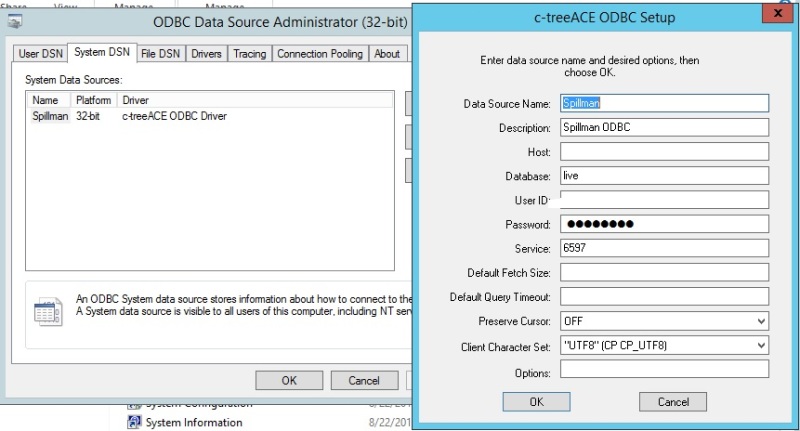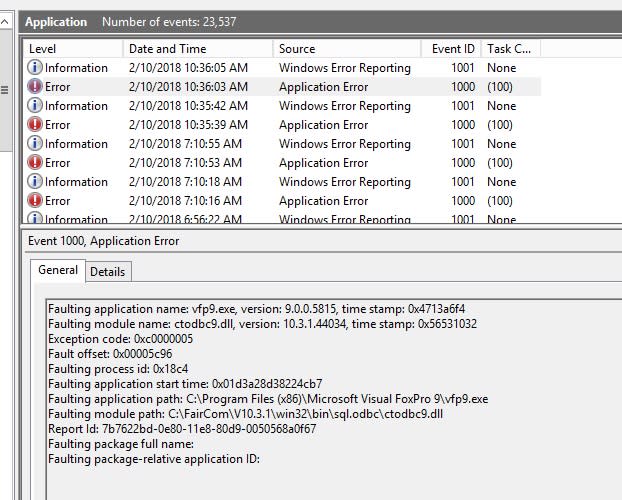I have setup an ODBC driver to access a database outside my app/outside my FoxPro database.
See the image below. Note that I have erased the Host, and Userid values for this posting.
I go into VFP9 command window and issue:
lnhandle=SQLCONNECT("Spillman","userid","password")
where userid and password are the values from the ODBC setup.
VFP9 crashes.
Fatal error: Exception code=C0000005 @ 02/09/18 02:09:36 PM. Error log file: C:\Program Files (x86)\Microsoft Visual FoxPro 9\vfp9err.log
I am totally lost.

See the image below. Note that I have erased the Host, and Userid values for this posting.
I go into VFP9 command window and issue:
lnhandle=SQLCONNECT("Spillman","userid","password")
where userid and password are the values from the ODBC setup.
VFP9 crashes.
Fatal error: Exception code=C0000005 @ 02/09/18 02:09:36 PM. Error log file: C:\Program Files (x86)\Microsoft Visual FoxPro 9\vfp9err.log
I am totally lost.


